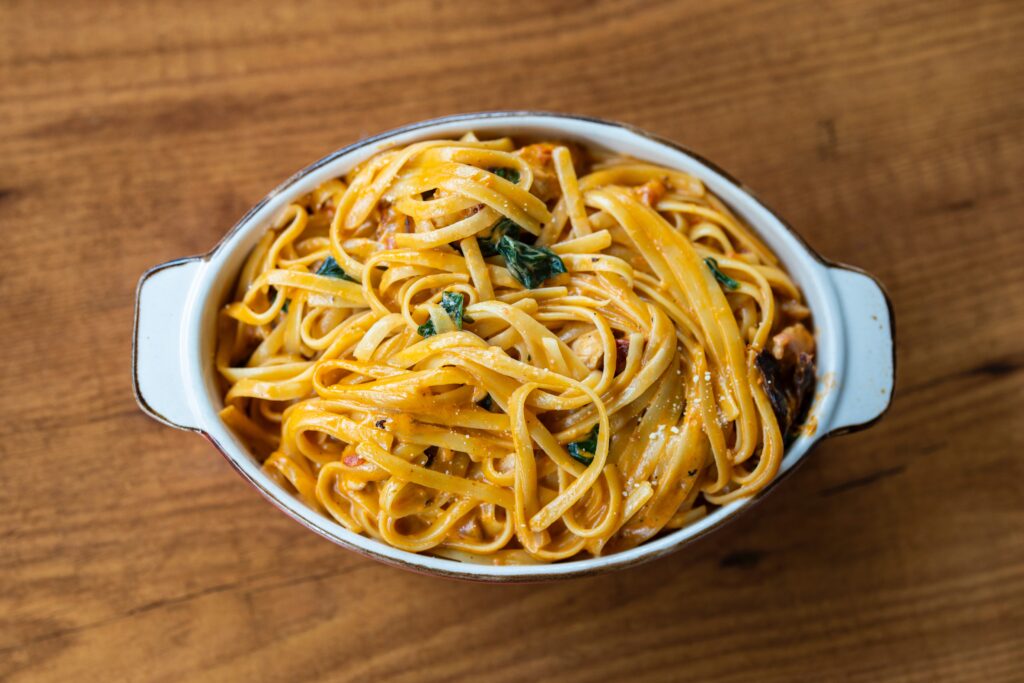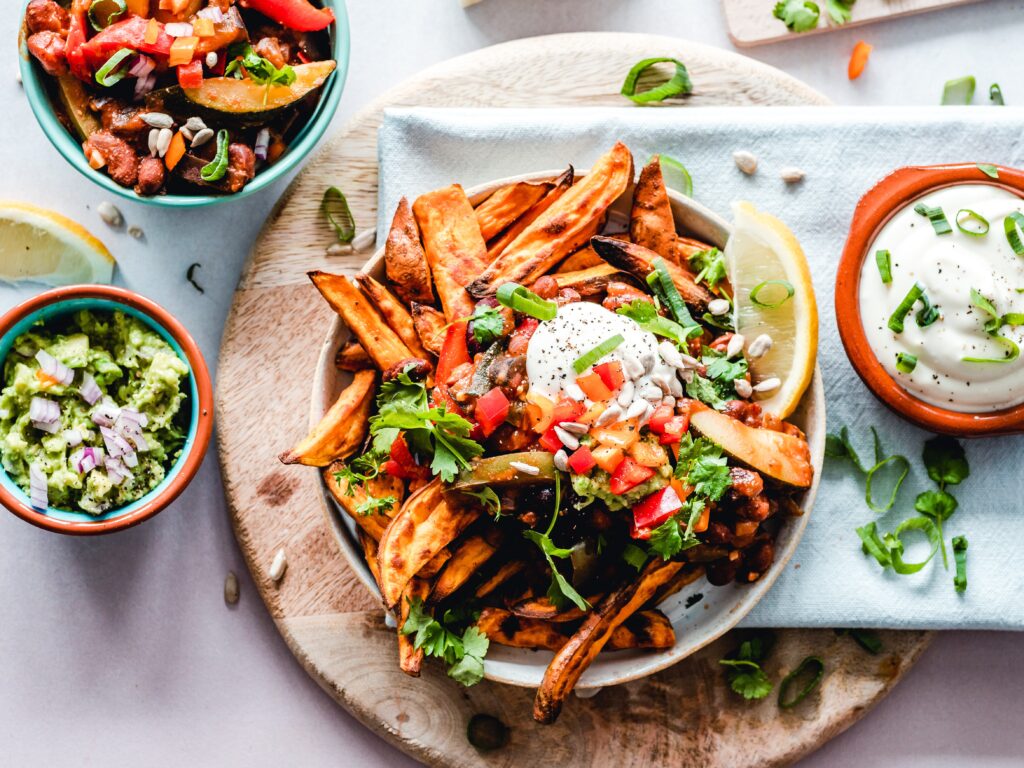Long distance running is a demanding sport that tests both mental and physical strength. On my last run I began thinking, what foods aid in recovery after a long distance run and help you run faster? Then I realized a key aspect of success in this discipline is the ability to help your muscles recover after these grueling experiences. One of the most effective ways to aid this recovery process is through nutrition. Choosing the right foods can help replenish depleted energy stores, repair damaged muscle tissue, and reduce inflammation. In this article, we will explore the five food types that aid in recovery after a long distance run.
5 Food types that aid in recovery
So I did some research and found the five types of food that can aid in recovery after a long distance run. They include:
- Carbohydrates: Eating carbohydrates after a long distance run can help replenish the glycogen stores that were depleted during exercise. Good carbohydrate options include whole grains, fruits, vegetables, and legumes.
- Protein: Protein is essential for repairing and building muscle tissue. Foods high in protein, such as lean meats, fish, eggs, dairy products, tofu, and beans, can aid in muscle recovery and growth.
- Healthy Fats: Incorporating healthy fats in your post-run meal can help reduce inflammation and promote muscle recovery. Some healthy fat sources include nuts, seeds, avocado, and olive oil.
- Fluids: It’s important to rehydrate after a long distance run. Water is the best option for hydration, but you can also consume electrolyte-rich drinks like coconut water, sports drinks, or fruit juice.
- Antioxidant-rich foods: Long distance running can cause oxidative stress on the body, and consuming antioxidant-rich foods can help combat this. Examples of antioxidant-rich foods include berries, dark chocolate, green leafy vegetables, and spices like turmeric and ginger.
Overall, a balanced meal that includes a combination of carbohydrates, protein, healthy fats, fluids, and antioxidant-rich foods will help the body recover from the stress you just put it through. Sometimes a balanced meal is not the easiest to prepare. Sometimes you have to fit in quick, easy “meals” to consume. These can include smoothies or healthy bars that you can take on the go until you can get a proper meal. CLICK HERE for a list of smoothie recipes that are good to consume after your run.
Carbohydrates
Consuming carbohydrates after a long distance run can provide a number of benefits for your body, including:
- Replenishing glycogen stores: During exercise, your body uses glycogen as a source of fuel. Consuming carbohydrates after a long distance run can help replenish the glycogen stores that were depleted during exercise, which is important for muscle recovery and preparing for the next workout.
- Preventing muscle breakdown: Consuming carbohydrates after a long distance run can help prevent muscle breakdown, as it provides the body with a readily available source of energy. This can help preserve lean muscle mass and aid in muscle recovery.
- Restoring energy levels: After a long distance run, you may feel fatigued and depleted. Consuming carbohydrates can help restore your energy levels and help you feel more alert and focused.
- Enhancing recovery: Consuming carbohydrates after a long distance run can help enhance recovery by providing the body with the nutrients it needs to repair and rebuild muscle tissue. This can help reduce muscle soreness and speed up recovery time.
Consuming carbohydrates after a long distance run is important for restoring energy levels, replenishing glycogen stores, preventing muscle breakdown, and enhancing recovery.

Protein
Consuming protein after a long distance run can provide several benefits for your body, including:
- Muscle recovery: Long distance running can cause micro-tears in your muscle fibers, and consuming protein after a run can help repair and rebuild these muscles. This is important for muscle recovery and growth.
- Muscle synthesis: Consuming protein after exercise can help stimulate muscle protein synthesis, which is the process of building new muscle tissue. This can help you maintain and increase lean muscle mass.
- Reduced muscle soreness: Protein can help reduce muscle soreness and inflammation that often occur after long distance running. This can help you recover faster and get back to your running routine sooner.
- Improved immune function: Long distance running can temporarily suppress the immune system, and consuming protein after a run can help boost immune function. This can help reduce the risk of illness and infection.
- Appetite control: Protein is known to be more satiating than carbohydrates or fats, meaning it can help control your appetite and keep you feeling full for longer. This can be helpful for managing hunger and avoiding overeating after a long distance run.
Overall, consuming protein after a long distance run is important for muscle recovery, synthesis, reduced muscle soreness, improved immune function, and appetite control.
Healthy Fats
Consuming healthy fats after a long distance run can provide several benefits for your body, including:
- Reduced inflammation: Long distance running can cause inflammation in the body, and consuming healthy fats can help reduce inflammation. Omega-3 fatty acids, found in fatty fish, nuts, and seeds, are particularly effective at reducing inflammation.
- Improved joint health: Long distance running can put stress on your joints, and consuming healthy fats can help improve joint health. Omega-3 fatty acids, found in fatty fish, can help reduce joint pain and stiffness.
- Enhanced recovery: Consuming healthy fats after a long distance run can help enhance recovery by providing the body with the nutrients it needs to repair and rebuild muscle tissue. Additionally, healthy fats can help regulate hormone levels, which is important for muscle recovery and growth.
- Satiety: Healthy fats are known to be more satiating than carbohydrates or protein, meaning they can help control your appetite and keep you feeling full for longer. This can be helpful for managing hunger and avoiding overeating after a long distance run.
- Improved heart health: Consuming healthy fats, such as monounsaturated and polyunsaturated fats, can help improve heart health by reducing the risk of heart disease.
Overall, consuming healthy fats after a long distance run can help reduce inflammation, improve joint health, enhance recovery, control appetite, and improve heart health.
Fluids
Consuming fluids after a long distance run is crucial for several reasons, including:
- Rehydration: Running, especially for long distances, can lead to significant fluid loss and dehydration. Consuming fluids after a run helps rehydrate the body and restore fluid balance.
- Regulating body temperature: When you run, your body temperature rises, and consuming fluids after a run can help regulate body temperature and prevent overheating.
- Replenishing electrolytes: Long distance running can cause a loss of electrolytes, such as sodium, potassium, and magnesium, through sweat. Consuming fluids after a run that contain electrolytes can help replenish these essential minerals and prevent electrolyte imbalances.
- Improved digestion: Consuming fluids after a long distance run can help improve digestion and absorption of nutrients from food. This can help speed up recovery and reduce gastrointestinal discomfort.
- Improved cognitive function: Dehydration can impair cognitive function and lead to fatigue and reduced concentration. Consuming fluids after a run can help improve cognitive function and keep you alert and focused.
Consuming fluids after a long distance run is crucial for rehydration, regulating body temperature, replenishing electrolytes, improving digestion, and improving cognitive function.

Antioxidant-rich foods
Consuming antioxidant-rich foods after a long distance run can provide several benefits for your body, including:
- Reduced inflammation: Long distance running can cause inflammation in the body, and consuming antioxidant-rich foods can help reduce inflammation. Antioxidants neutralize free radicals, which are harmful molecules that contribute to inflammation.
- Improved recovery: Consuming antioxidant-rich foods after a run can help improve recovery by reducing oxidative stress and damage to muscle tissues.
- Boosted immune function: Long distance running can temporarily suppress the immune system, and consuming antioxidant-rich foods can help boost immune function. Antioxidants help protect the body against harmful pathogens and support immune cell function.
- Reduced muscle soreness: Consuming antioxidant-rich foods can help reduce muscle soreness and inflammation that often occur after long distance running. This can help you recover faster and get back to your running routine sooner.
- Improved heart health: Antioxidants, such as polyphenols and flavonoids, have been shown to improve heart health by reducing inflammation, improving blood flow, and lowering blood pressure.
Consuming antioxidant-rich foods after a long distance run can help reduce inflammation, improve recovery, boost immune function, reduce muscle soreness, and improve heart health. Foods that are high in antioxidants include berries, leafy greens, nuts, seeds, and dark chocolate.

So what I have found that works best for me is a balanced meal that includes a combination of carbohydrates, protein, healthy fats, fluids, and antioxidant-rich foods after a long distance run. My optimal recovery plan from a long distance run is a combination of a well balanced meal, a healthy dose of stretching, myofacial release and rest. This combination will have you back on the road quicker and faster than ever!

